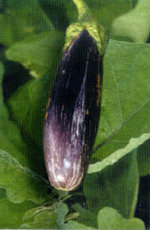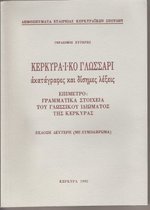Κοίταξα από περιέργεια για την Ελλάδα και βρήκα τα εξής:
Τσακώνικα
Vitality: critically endangered
Number of speakers: 300 (based on correspondence with Nick Nicholas; the majority of the remaining speakers are in Leonidio area)
Location(s): villages around Leonidio in the south of the area, and the villages of Kastanitsa and Sitena in the north; Propontis Tsakonian was spoken by colonists in the villages of Havoutsi and Vatka on the mouth of the Gönen river in northeastern Turkey, but the speakers were settled in Greek Macedonia following the 1922 population exchanges, and Propontis Tsakonian became extinct in the 1970s.
Αρβανίτικα
Vitality: severely endangered
Number of speakers: 50,000 (1991 Sasse estimate)
Location(s): rural areas in Attica, Boeotia (Voiotía), southern Euboea (Évvoia), northern Andros (Ándros), Corinthia, Argolis and a few smaller sections of Peloponnese and central Greece; an outlying dialect of (Tosk) Albanian
Corfiot Italkian
Alternate names: Corfiote Italkian; Judeo-Italian
Vitality: critically endangered
Number of speakers: 0 (not available; nearly extinct)
Location(s): Corfu; an outlying dialect of Venetan not listed at all by the SIL
Βλάχικα
Aromanian (en)
Alternate names: Macedo-Romanian; Vlach; Tsintsar
Vitality: definitely endangered
Number of speakers: 500,000 (2002 Atanasov)
Location(s): Thessaly and Epirus in northern Greece; the central parts of Albania; several small pockets in the Republic of Macedonia, Greek Macedonia and Bulgaria; immigrant groups deriving from the eighteenth century in Serbia, especially between Niš and Kladovo; many Aromanian immigrants since the early twentieth century also in Romania
Μεγλενίτικα (σύμφωνα με την Wikipedia, βλάχικη διάλεκτος)
Vitality: severely endangered
Number of speakers: 5,000 (1990 estimate based on Atanasov 2002; does not cover émigré communities in Romania and Turkey)
Location(s): the Meglen (Μογλενά) region where the Vardar (Axios) River crosses the border between the Republic of Macedonia and Greece; original villages Umă (Huma) in the Republic of Macedonia, and Ľumniţă (Σκρά), Cupă (Κούπα), Oşiń (Άρχάγγελος), Birislăv (Περίκλεα), Lunḑiń (Λαγκαδιά), Ţărnareca (Κάρπι) and Nănti, Nǫnti (Νότια) in Greece; many have left the original area; further émigré communities in Romania and Turkey
Gagauz (en)
Related records: Gagauz (Bessarabia); Gagauz (Deli Orman); Gagauz (Maritime); Gagauz (South Balkans)
Vitality: severely endangered (overall vitality: definitely endangered)
Number of speakers: 0 (not available; according to Schulze (2002), of the 4,000 ethnic Gagauz in Macedonia and the possibly 7,000 ethnic Surguch at best the elderly speak Gagauz)
Location(s): Strumica in southeastern Macedonia; the region of Evros in northeastern Greece; Surguch in the region of Edirne (Adrianople) in Turkey
Cappadocian Greek (en)
Related records: Cappadocian Greek (Greece); Cappadocian Greek (Turkey)
Vitality: critically endangered
Number of speakers: 0 (Janse: “there are probably several hundreds of native speakers and possibly another several hundreds of semi-speakers of Mistiot Cappadocian”)
Location(s): Cappadocia in central Turkey, notably in Sille (Silli) near Konya, villages near Kayseri, and Faras (Pharasa) and adjacent villages, before the genocide of 1915 and the subsequent population exchanges, after which most survivors settled in Greece; Cappadocian Greek was thought to be extinct until Mark Janse and Dimitris Papazachariou discovered speakers in 2005; an outlying dialect of Greek
Romani (en) (Ρομά τα λέμε εμείς; )
Alternate names: sinti, vlax, calò
Vitality: definitely endangered
Number of speakers: 3,500,000 (Matras 2002 estimate)
Location(s): many European countries, most densely in East-Central and Eastern Europe and in the Balkans
Ισπανοεβραϊκή γλώσσα ή λαντίνο
Alternate names: Ladino; Judeo-Spanish; Sephardic; Haketía (local name in Morocco)
Related records: Judezmo (Europe); Judezmo (Israel)
Vitality: severely endangered
Number of speakers: 0 (cf. Judezmo (Israel))
Location(s): traditionally Greece and Turkey, primarily in the historical provinces of Macedonia and Thrace, but also elsewhere in the Balkans, as well as Morocco, Ceuta, Melilla and Algeria in North Africa; now a few locations in Turkey, where largely concentrated in Istanbul (traditionally in the quarters of Balat and Hasköy), by probably less than 10,000 speakers; in Greece or elsewhere in the Balkans there are very few if any Judezmo speakers left after the Holocaust, and in North Africa the language is extinct
Τώρα, μήπως μερικά από τα παραπάνω θεωρούνται διάλεκτοι και όχι γλώσσες; Όπως για παράδειγμα τα ελληνικά της Καππαδοκίας ή τα Μεγλενίτικα;
Επίσης, ανακάλυψα πράγματα που δεν ήξερα για τη χώρα που ζω - τι είναι τα gagauz και πώς λέγονται στα ελληνικά; Κι αυτά τα απίθανα κορφιάτικα, πάλι; Ξέρει κανείς τίποτα;



